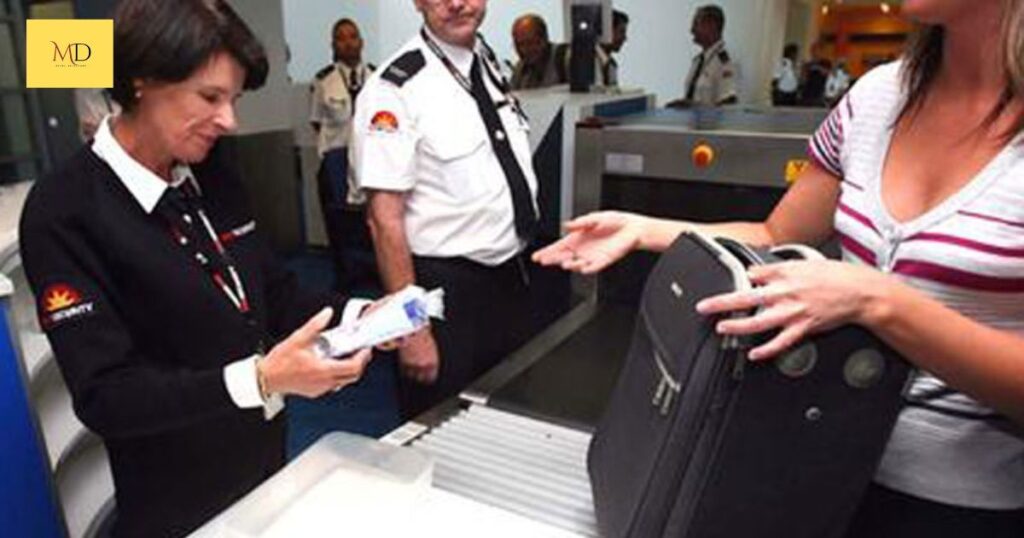Metal detectors are electronic devices that can identify the presence of metal objects. They emit an electromagnetic field and detect disruptions caused by metal. Widely used in security and treasure hunting, they help locate hidden metal items in various environments. Metal detectors have applications in airports, archaeological sites, and recreational activities.
Ever wondered if your everyday batteries could set off metal detectors? The answer might surprise you! Next time you walk through airport security, think twice about what’s in your pockets. Discover the surprising connection between batteries and metal detectors, and stay tuned for a quick tip on how to navigate security hassle free.
Yes, batteries can set off metal detectors. Most metal detectors are sensitive to the metal components within batteries, triggering an alert during security screenings. This is why it’s important to remove items like spare batteries from your pockets before passing through metal detectors, ensuring a smoother and more efficient screening process.
How Metal Detectors Work
Metal detectors operate based on the principles of electromagnetism. When activated, they emit a low-level electromagnetic field around the detector’s coil. In the absence of metal objects, the electromagnetic field remains undisturbed. However, when a metal object is introduced into the vicinity, it disrupts this field. This disruption triggers an alert or a signal, indicating the presence of metal.
The detection process involves the interaction between the emitted electromagnetic field and the conductive properties of metal. Metals such as iron, nickel, and copper are particularly responsive to these detectors. This technology finds applications in diverse fields, from security checkpoints at airports to archaeological digs. The ability to pinpoint metal objects beneath various surfaces has made metal detectors indispensable tools.
Electromagnetic Fields
Electromagnetic fields are invisible forces generated by the movement of electrically charged particles. In the context of metal detectors, these fields play a crucial role in detecting metal objects. When a metal object enters the detector’s electromagnetic field, it disrupts the normal flow of energy, triggering an alert. This basic principle forms the foundation of how metal detectors operate, making them valuable tools in various fields.
Sensitivity to Metal Objects
Sensitivity to metal objects is a crucial aspect of how metal detectors operate. These devices are designed to emit electromagnetic fields and identify disruptions caused by the presence of metal. The level of sensitivity determines the detector’s ability to detect various metal objects, ranging from small coins to larger items. In security settings, such as airports and public venues, higher sensitivity allows for the detection of even small metal items that might pose a potential threat.
The Role of Batteries
Batteries play a surprising role in the functionality of metal detectors. These detectors operate by emitting electromagnetic fields and sensing disruptions caused by metal objects. Since batteries contain metal components, they can trigger alarms during security screenings. This interaction is particularly relevant in places like airports, where efficient and accurate screening is crucial.
While the connection between batteries and metal detectors is clear, it’s essential to note that not all batteries are created equal. The size and composition of batteries can influence the sensitivity of metal detectors. Being aware of these factors allows individuals to make informed choices about how to transport batteries and minimise the chances of setting off alarms during security checks.
Metal Components in Batteries
Batteries contain metal components that play a crucial role in their functionality. The most common types of batteries, such as alkaline and lithium batteries, have metal casings and conductive components inside. These metals, including zinc, steel, and lithium, can trigger metal detectors. When passing through security checkpoints, it’s essential to be aware that carrying batteries in your pockets might lead to an alarm.
Impact on Metal Detector Alerts
When it comes to metal detector alerts, the presence of batteries can indeed have a significant impact. Metal detectors operate by emitting electromagnetic fields and sensing disruptions caused by metal objects. Batteries, with their metal components, can trigger these detectors, leading to security alerts during screenings. The sensitivity of metal detectors plays a crucial role in this interaction, as even small amounts of metal in batteries can be enough to set off an alarm.
Airport Security Protocols

Airport security protocols are stringent measures in place to ensure the safety of travellers and prevent potential threats. These procedures encompass a series of checks and screenings, including the use of metal detectors, X-ray scanners, and other advanced technologies. Security personnel are trained to follow specific guidelines to maintain a high level of vigilance and effectively detect any prohibited items or security risks.
Passengers play a crucial role in adhering to airport security protocols by cooperating during screenings. Following instructions, removing items like belts and electronics from pockets, and placing them in designated bins contribute to a smoother and more efficient screening process. Adherence to these protocols enhances overall airport security, providing travellers with a safe and secure environment during their journeys.
Guidelines for Battery Handling
When it comes to navigating airport security, adhering to guidelines for battery handling is crucial. Airlines and security personnel recommend removing batteries from electronic devices before passing through metal detectors. This proactive step minimises the likelihood of triggering alarms and streamlines the screening process. By following these guidelines, travellers contribute to a smoother and more efficient airport experience.
Common Mistakes to Avoid
In navigating the realm of metal detectors, there are a few common mistakes that can easily be avoided. One prevalent error is forgetting to empty pockets entirely, leading to unexpected alarms due to overlooked items like keys or loose change. Another misstep is neglecting to remove metal accessories such as belts and jewellery, which can inadvertently trigger the detector.
FAQ,S
Will a vape battery set off a metal detector?
Yes, a vape battery can potentially set off a metal detector. Vape batteries typically contain metal components, and their presence may trigger the detector’s alarms during security screenings.
What will throw off a metal detector?
Items with significant metal content, such as keys, coins, jewellery, and electronic devices, can throw off a metal detector.
What can trigger a metal detector?
Metal detectors can be triggered by various metal objects, including coins, keys, jewellery, belt buckles, and electronic devices with metal components.
Conclusion
In conclusion, understanding the dynamics between batteries and metal detectors sheds light on the importance of careful preparation during security screenings. Whether at airports or other high-security locations, the simple act of removing batteries from your pockets can save time and prevent unexpected disruptions.
This small but crucial step contributes to a seamless and efficient screening process, allowing individuals to move through security checkpoints with ease. As we navigate the intricate web of modern security measures, it becomes evident that a bit of awareness and consideration go a long way in ensuring a hassle-free experience for everyone involved. So, the next time you approach a metal detector, remember: a little foresight can make a significant difference in maintaining the smooth flow of your journey.











